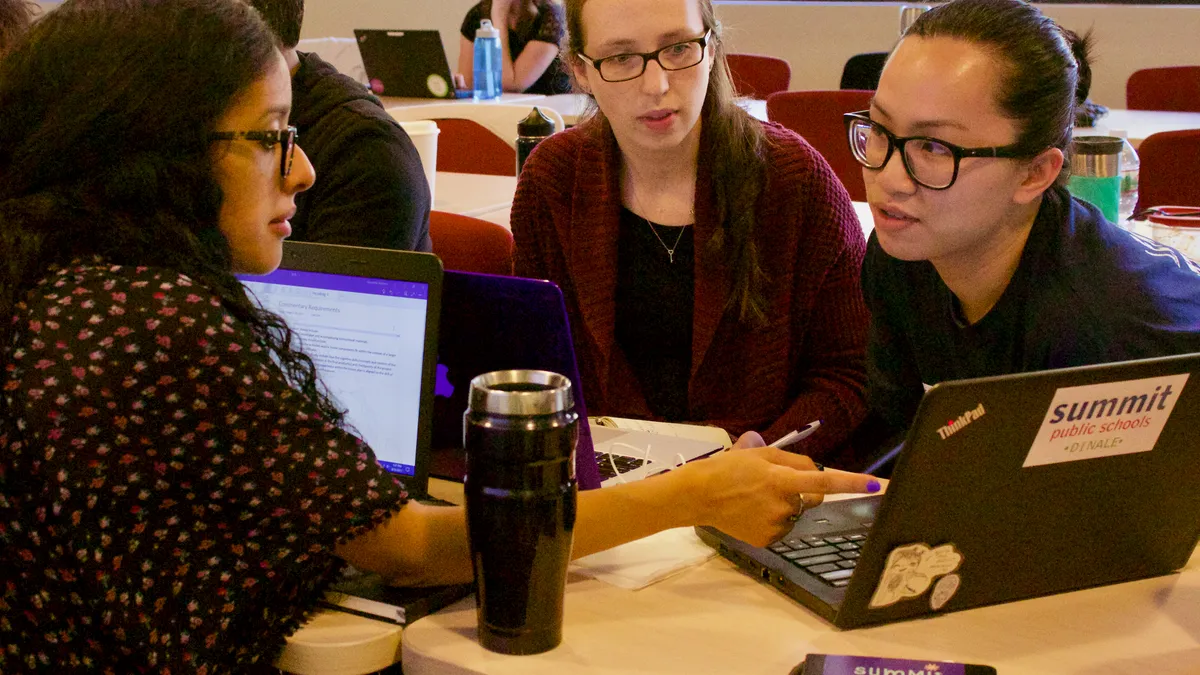Dive Brief:
-
Teacher residency programs attract more prospects and increase the number of teacher hires, District Administration reports. The programs offers a deeper, longer and more rigorous level of educator training than traditional student teaching programs — and the efforts pay off for districts because the trainees often opt to stay with them after graduation.
-
The Fulton County Schools in Georgia, for example, piloted a 45-student teacher residency program last year that resulted in 36 new teachers for the district. The smaller Richland Parish Schools in Louisiana was able to hire nine of its 11 teacher residents who participated in that program.
-
Pay for residents varies from small compensation to five-figure stipends. Most programs require a year of full-time work under a mentor, which gives beginning teachers the opportunity to develop more advanced teaching skills than they would through the traditional student teacher model.
Dive Insight:
Districts use teacher residency programs as a recruitment tool to attract and retain top talent to the classroom. A proposal to provide as many as 1,000 prospective teachers in New York City with housing stipends is being considered as part of a year-long residency program, which attempts to encourage teachers to remain in the profession. The New York City Department of Education, for example, lost 41% of its 2012-2013 hiring class after five years.
Educators-in-training need custom-fit mentoring programs that address their specific needs and situations. In the Albuquerque Public Schools in New Mexico, the Mentor Program offers a one-on-one coaching model in partnership with the Albuquerque Teachers Federation. It pairs mentees with mentors who give evaluation-free personalized development.
Districts are also looking within their own boundaries for home-grown educators. For example, San Jose Unified School District launched its “Rise into Special Education” initiative that provides free tuition at San Jose State University, access to an Apple laptop and classroom mentoring opportunities. The program targets those who have already worked with special education students in the district. Once certified, the teachers commit to a four-year placement working as a special education teacher in the district.












